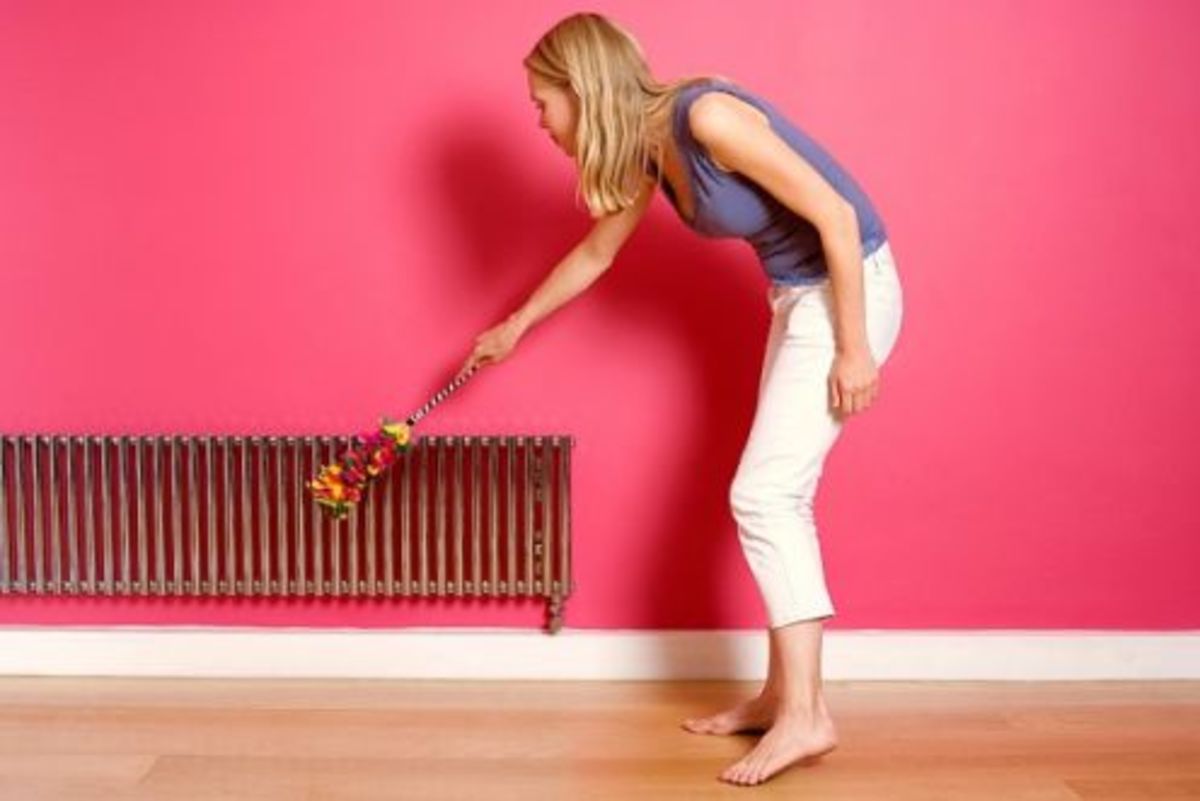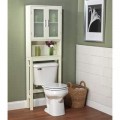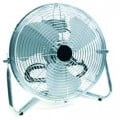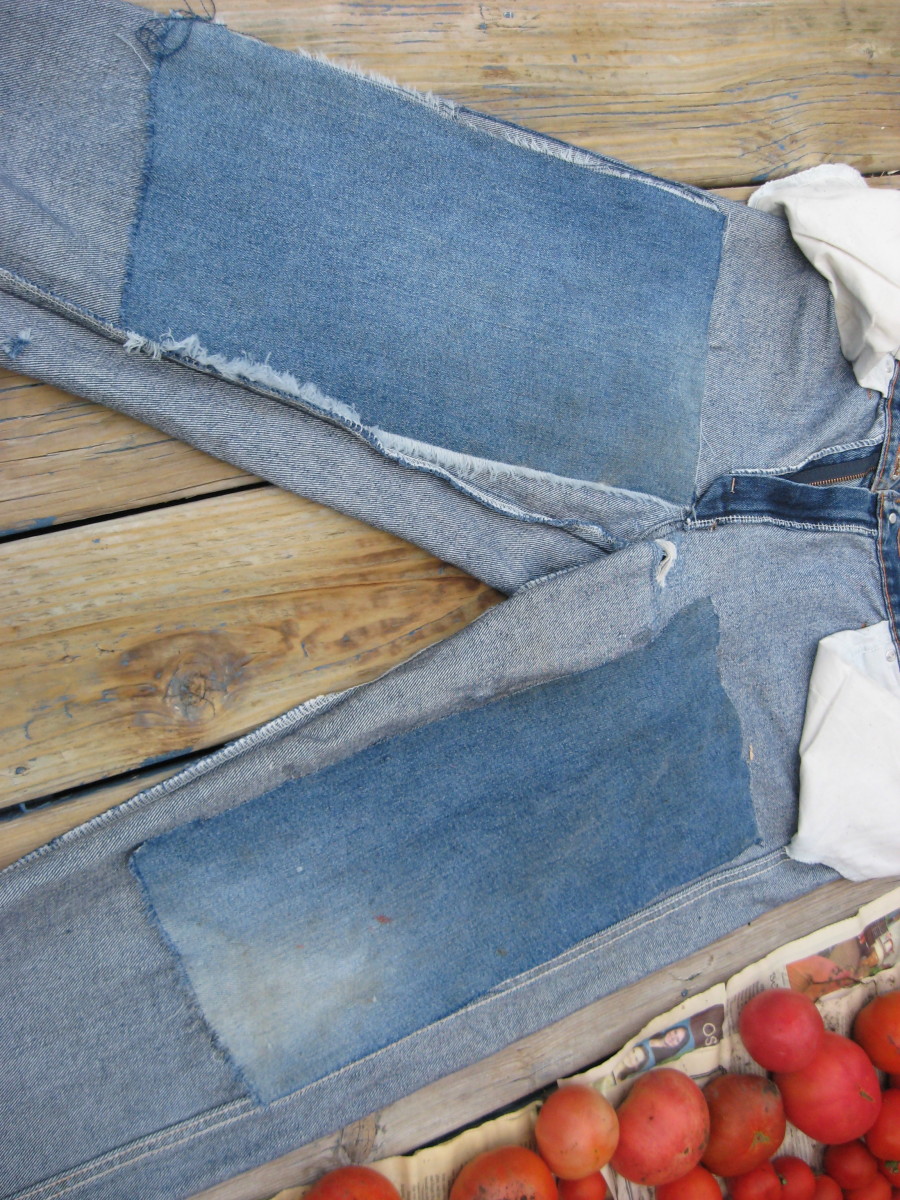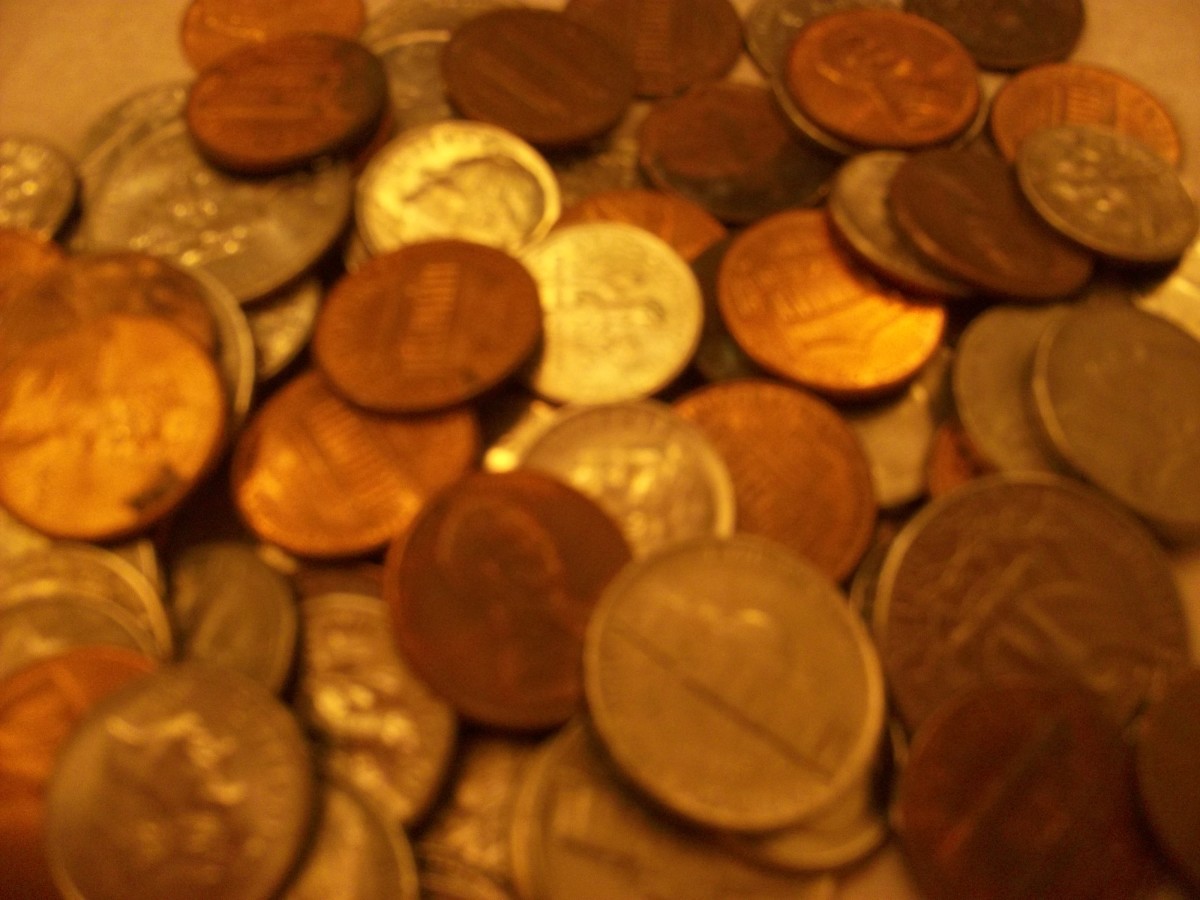Clear the Clutter
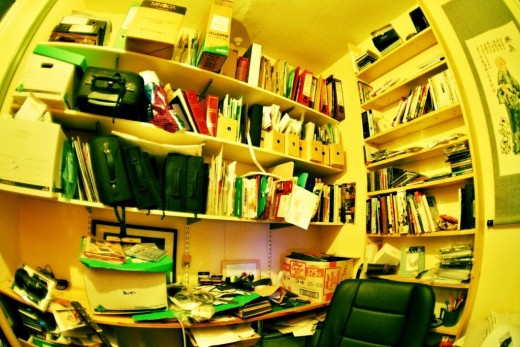
The hidden costs of too much stuff
Clutter costs us in money, time and energy. The longer we keep the clutter, the more it costs us.
- We lose time looking for things, lost in piles.
- We lose energy in forever organizing, sorting and storing our collections.
- We lose money in buying storage containers, or storage facilities, if there is too much to fit into your home. We may also buy multiples of an item we own, because we can't find it, or forgot we already had it, somewhere.
Clutter makes it more difficult to clean properly as it harbors allergens and pests, and saps our emotional energy, making us enjoy our surroundings, our homes, less (or not at all).
Moving houses with too much clutter costs directly in moving van costs, but also in energy, especially if you are moving loads of boxes yourself.
Extreme levels of clutter, often found in attics, basements and garages, can be physically dangerous when piled unsafely.
Confessions of a pack-rat
I am a pack-rat, in remission (or recovery).
I like having a full pantry, just in case I want to make something (anything), and an art/craft/fabric collection for when inspiration strikes.
Extensive collections of things (books, herbs, garden seeds, gemstones, essential oils, DVDs, bento supplies, and more) were an unhealthy way for me to fill a void caused by a tough childhood.
I lugged this stuff around through numerous moves, slowly paring back collections. But it wasn't until a drastic overseas move that I re-evaluated my pack-rattiness.
Now, I'm strongly reining my collection-compulsions in, and learning to love living with less clutter.
Lost in clutter - wasted time
Ever wasted time looking through clutter for something?
- for your keys
- the perfect t-shirt in your bursting wardrobe
- an important paper or bill
- the perfect photo in your huge digital photo collection
- the right tool for the job
- an ingredient that you are sure you bought a few weeks ago, and simply must be hiding in the back of a kitchen cupboard
I certainly have!
Clutter makes you lose a lot of time and energy, searching for the items you want to use, both physical and electronic.
Occasionally, duplicate purchases will occur, because you can't find the first purchase.
To prevent time spent finding lost items
- Have dedicated places for both physical and electronic items: keys/wallet by the door, papers filed, dedicated folders for electronic files, glasses cleaning cloth in the coffee table drawer, etc.
- If you are going paperless, and scanning your documents, make sure you rename the files appropriately, and store them in their folders immediately after scanning. I'm still sorting through my scanned document clutter from before I moved overseas!
- Develop the habit of putting things in their places after use.
- Delete the digital photos you aren't happy with before you store them - their numbers add up terrifyingly fast!
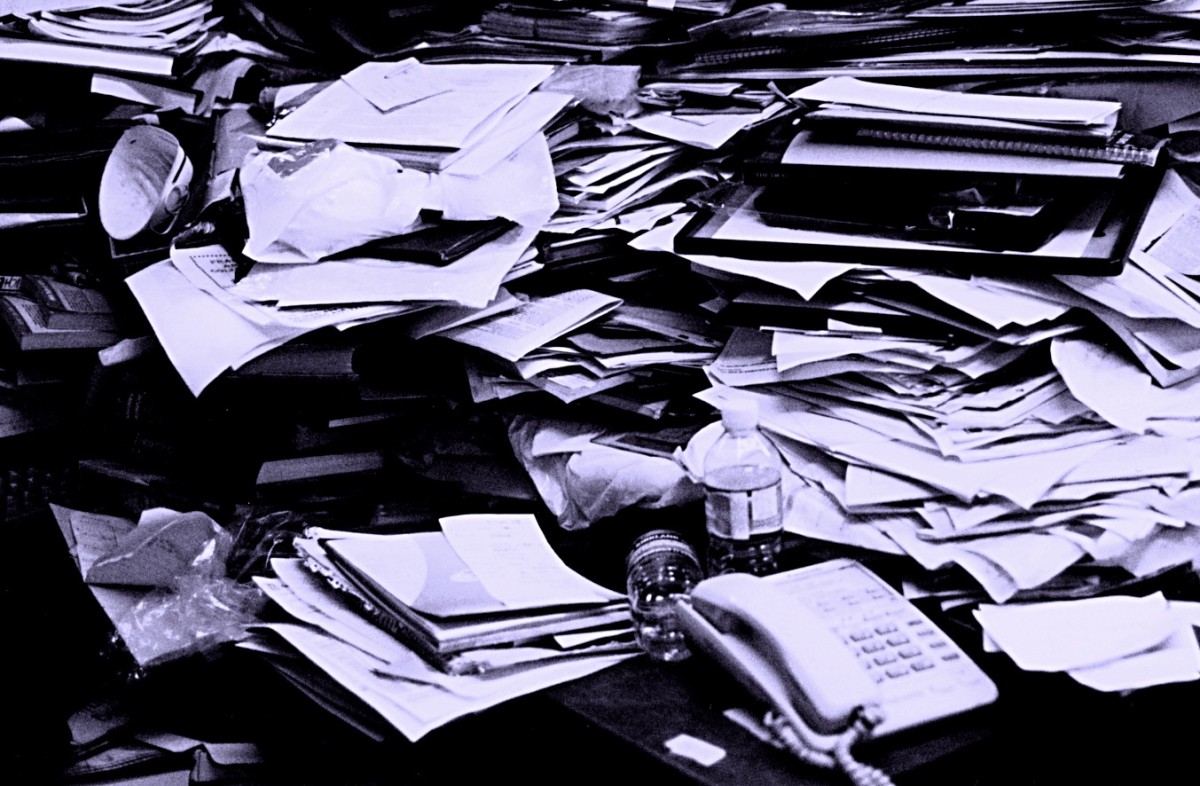
Cost of storing clutter
Clutter costs money
There are many less-than-obvious ways that clutter can cost money, more than the original purchase price of the items.
- Moving - more stuff takes a longer time to move, the mover's fees will be higher.
- Storage - an overflow into a storage unit results in monthly fees. Even a collection of plastic storage tubs can cost a lot of money!
- Duplicates - necessary items lost are often replaced (then the original is found).
- Late fees - if you rely on paper bills, but lose them in clutter piles, there's the late fees to pay. Lost rental DVDs and books from the library can cause hefty fines. Lost receipts can't be included in your tax return, netting you fewer deductions.
- Pest control - if mice or cockroaches move into your boxes used for storage, they can be difficult and expensive to eradicate. Plus they can destroy what is stored in the boxes!
- Health - an increase in allergens and bacteria in clutter collections, can cause more illnesses and allergies, resulting in higher medication use.
- Breakages - a nest of cables, especially if any are dangling, are an expensive toy for your pet. Control the cable clutter for the safety of your pets, and to avoid having to replace the electronics. Especially with younger cats, clutter on surfaces is likely to go flying when they play. Therefore, surfaces should be kept as clear as possible.
Are you a pack-rat?
Clutter saps your energy
You don't get back the energy spent in sorting and organizing, storing and cleaning piles and collections of stuff.
As long as the clutter remains, it requires you to use energy to maintain it and keep it clean.
Clutter also eats away at your emotional energy:
- You feel stressed because it looks like an unfinished task.
- Your memory is stretched to its limit to remember where everything is.
- You feel embarrassed to have people drop in, not wanting to show your cluttered home.
Living in clutter is demoralising, leading to procrastination - the task of sorting through clutter is overwhelming. Of course, you will find other, nicer things to do, instead of once more re-organizing and sorting the piles of stuff.
If you are chronically ill, clutter can add to feeling overwhelmed, and worsen symptoms, especially memory problems and pain. Getting rid of clutter, and making things easier to clean has helped me deal better with fibromyalgia symptoms (especially with memory problems and productivity).
Less clutter = easier to clean
Bathrooms and kitchens are two rooms that quickly accumulate clutter, and should be kept clean. But cluttered surfaces are time consuming to wipe down - you have to remove everything first.
Controlling clutter in the bathroom
- Store bathroom bits and pieces (makeup, hair accessories, spare razors, body creams, etc.) away from the counters in cupboards, drawers and plastic boxes. You'll find them quickly if you keep them organized. If you have bulk-purchased items or refills, store the extras in a central storage place, until they are needed.
- Shower and bath items can be put on hanging or wall-mounted shower shelves (not on the shower floor - dangerous).
- Store medication properly - loose sheets of tablets and tubes of medicated ointments can be extremely dangerous clutter with pets and young children!
Avoid clutter in the kitchen
- Process bills and mail away from the kitchen, don't let paper pile up on the bench or table.
- Have a dedicated place for all kitchen appliances and tools, and return them to their places after use.
- Avoid having collections of things on the bench. Herb and spice jars work well lying down in drawers near the stove top - less to dust too!
- Optimise the wall space - cupboards, shelves and hanging racks are great for helping to keep counters clear and easy to clean.
Allergen buildups from clutter
Bedrooms, studies and living rooms with lots of clutter are happy places for allergens.
- Dust and pet dander builds up in the paperwork and in the piles of clothes.
- Mould thrives on cluttered wet surfaces in the bathroom and kitchen.
- Dust mites adore soft-toy collections and over-packed closets.
- Open windows allows pollen inside, which then settles into the clutter piles.
Removing the clutter makes it easier to clean dust and mould, and reduce allergies.
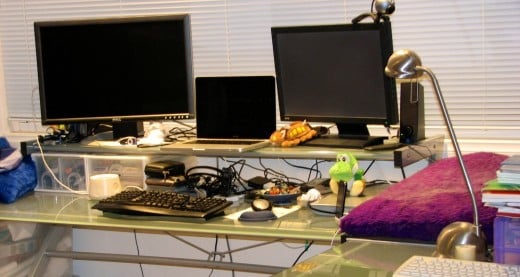
Which room in your home is your most cluttered?
5 steps to beat clutter
Spend a set amount of time each week (or each month), to process and reduce your hoard:
- Work out which items (and electronic files) you definitely need, and dedicate storage places for them. They will live in these places when they are not in use.
- Collect, photograph, list and sell items that can be sold. Don't put this step off, or you'll have a pile of 'must sell' clutter that just hangs around, taking up space and emotional energy! Plus you'll get some extra money from it.
- Collect and drop of items that can be donated.
- Trash and recycle the rest - this includes electronic files and digital photos!
- Avoid accumulating clutter in the areas you have processed.
If you find the clutter creeping in, jump on it immediately - much better to catch a small pile, than to find yourself back at square one. Don't beat yourself up though, just notice it, and process the clutter-creep away.
How much could you save if you got rid of your clutter and its overhead costs of time, energy and money?
How could you put these savings into your dreams?
Comments
Do you have a story about clutter - how it has impacted your or a family member's life?
If you have decluttered, how has it improved your life?
Let us know in the comments below!


